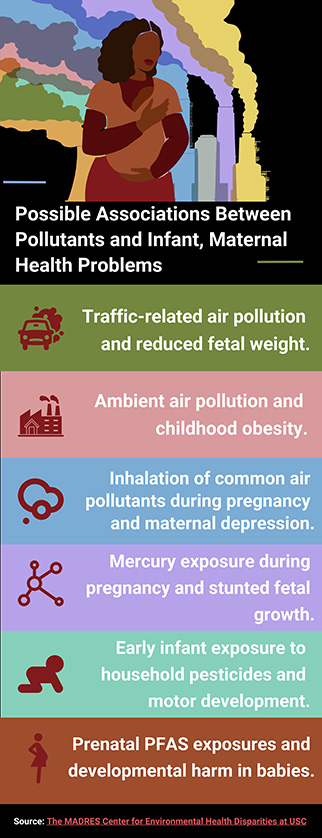
Tracy Bastain, Ph.D., co-director with Carrie Breton, Sc.D., of the Maternal and Developmental Risks from Environmental and Social Stressors (MADRES) Center for Environmental Health Disparities at the University of Southern California, was quoted in an article about the effects of prolonged exposure to environmental chemicals on maternal, fetal, and pediatric health.
The article cites several publications stemming from the MADRES study. For example, a 2022 paper found that early pregnancy exposure to metals including barium, mercury, and thallium may have short-term impacts on a type of cellular communication important for placental development.
In 2020, the MADRES team reported that, even at relatively low levels, arsenic exposure may negatively affect fetal growth, particularly in combination with greater maternal weight gain during pregnancy.
In addition, MADRES researchers found that higher concentrations of a chemical called perfluorononanoic acid were associated with lower fetal head circumference (the study has not yet been peer-reviewed).
For its part, the MADRES Center is pioneering research in partnership with local community groups to uncover the influence of social and environmental factors on health, with an eye toward preventing harmful effects.


